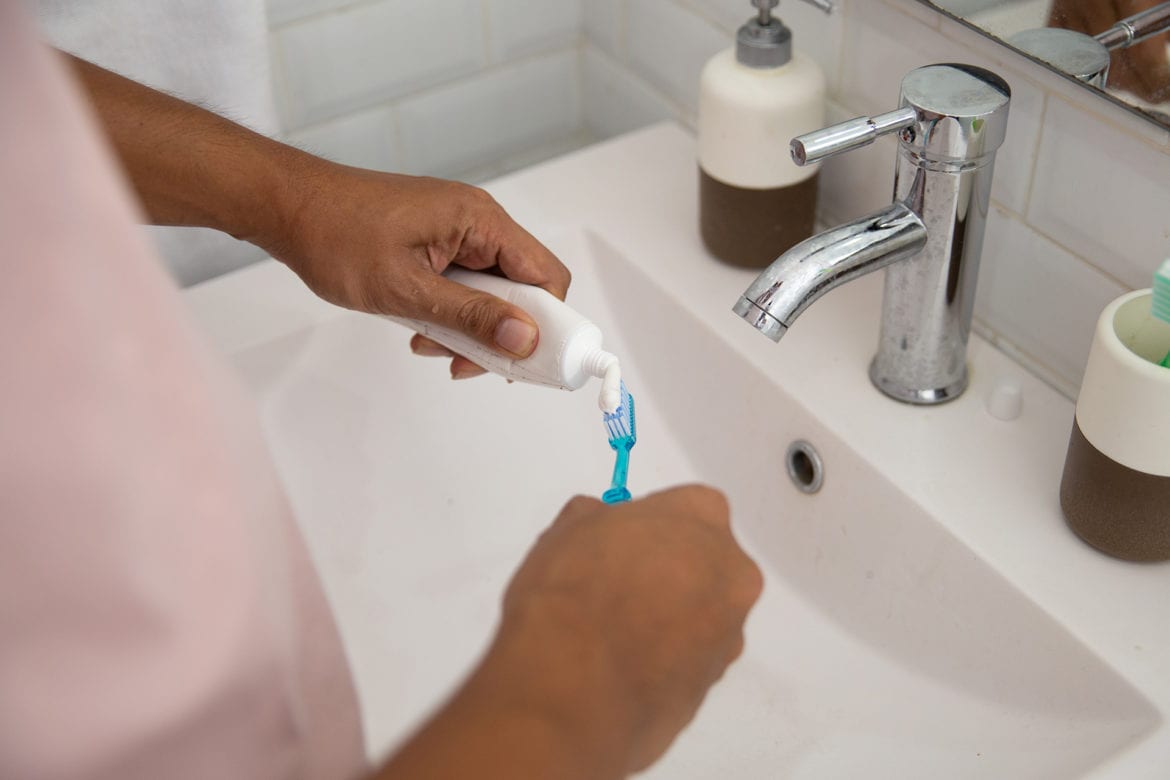Fluoride is one of the most discussed topics when it comes to the world of dentistry. You’ve probably heard a bit on both sides of the spectrum: one, that fluoride is not necessary, and the other, that fluoride is good for your oral health.
Here’s the truth: when used correctly, fluoride does not pose a threat to overall health. Instead, it provides a benefit to oral health and aids in preventing cavities.
What Is Fluoride and Where Does It Come From?
Fluoride is a natural mineral found in soil, water, and foods. It is both common and abundant in nature. Synthetic fluoride is produced to be used in drinking water and dental hygiene products such as toothpaste, mouthwashes, and various chemical products.
What Products Contain Fluoride?
Fluoride is found in dental products, such as toothpaste, mouthwashes, some floss, cement & fillings, gels, and varnishes. Many products are fortified with fluoride because of its ability to prevent tooth decay by about 20-40 percent, according to the American Dental Association, and reduces cavities in patients of all ages. As a result, the use of fluoride can save time and money due to costly procedures to restore teeth damaged by decay.
Fluoride in Water
In many areas, water fluoridation is also used to help curb dental problems. In a study by Cochrane, when fluoride was added to their water supply, children experienced 35 percent fewer decayed, missing, or filled baby teeth and there was a 15 percent increase in children with no decay in their baby teeth.
How Does Fluoride Work?
Fluoride works to prevent tooth decay by…
- Changing the way enamel develops in children under the age of 7, making it more resistant to acid attack
- Creating an environment where better quality enamel is formed, assisting in resistance to acid attack
- Reducing the ability of bacteria in plaque to produce acid
All these benefits help protect and strengthen tooth enamel to prevent tooth decay and costly dental issues down the road.
Are There Risks Associated with The Use of Fluoride?
Like any substance you put into your body, moderation is key. While it’s proven that fluoride is beneficial in reducing tooth decay, there are side effects of ingesting too much fluoride.
For most of us, we don’t have to worry about consuming too much fluoride because of regulations in the fluoridation of water and the safe amount used in dental hygiene products. The most common side effect of fluoride is temporary white spots or streaks on teeth with high fluoride exposure. This does not harm the teeth and is instead considered a cosmetic concern. These marks often disappear over time.
Small amounts of fluoride are unlikely to be dangerous and over 100 national and international health and other organizations recognize the benefits of adding a safe amount of fluoride to water and dental products.
Should I Use Fluoride?
The Centers for Disease Control and Prevention (CDC) and the World Health Organization (WHO) have different standards of how much fluoride can be…..

